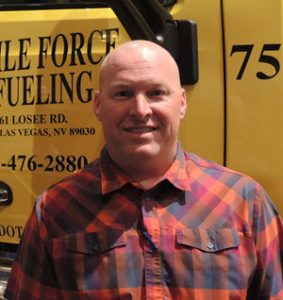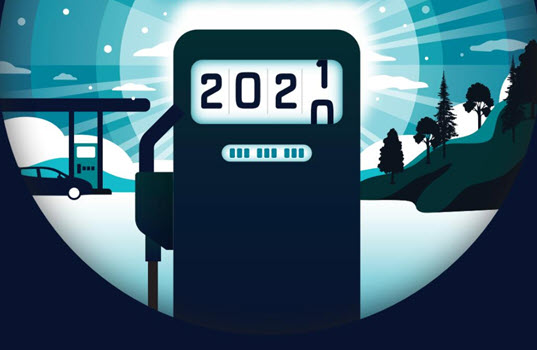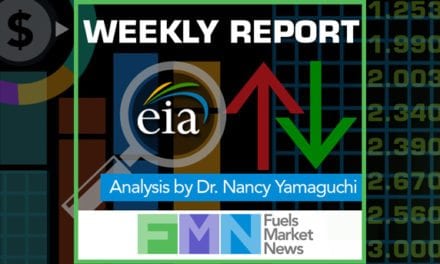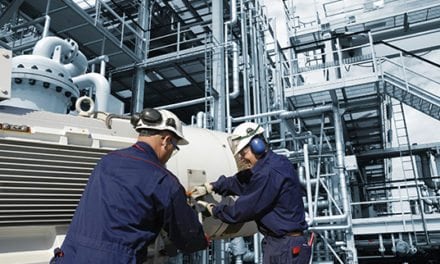Industry leaders share how COVID-19 affected their businesses and their outlook for 2021.
By Keith Reid
As we move into 2021, it’s a good time to reflect on what has happened for the industry in the past year and get some perspective on what lies ahead. We leveraged the four marketer/retailer members of our new FMN Editorial Council to get their perspectives on the Year of COVID-19, and what they are planning for in 2021 (two in each part of the article). They also provide some best practices from their operations and answer questions about how they lead their successful operations. The Council, composed of four retailer/marketer members and four supplier/vendor members, was developed to provide insights and ideas to help the FMN team maintain the quality of our publications and to help us consider innovative developments for the brand. Two of the members will provide insight in each past of this article.
 Brad Davis
Brad Davis
Brad Davis is the managing partner/owner of Mobile Force Refueling (MFR), which provides turnkey mobile equipment and vehicle fuel and lube solutions for commercial customers. It operates 31 trucks, provides on- and off-road diesel fuel, a full line of top-grade petroleum products and an experienced staff to facilitate these operations.
How was 2020 for your operation?
Davis: 2020 has been our best year ever, and we’ve had a tremendous amount of growth. This has been our best year ever, as far as gallons and revenue and profits. And we look for it to continue that way for the foreseeable future. We have experienced virtually no effects from the current virus. We were busy in all the spaces that we work in. And we operate in Arizona and cover Nevada and New Mexico, with some work in Colorado as well. They didn’t have such an aggressive response to the pandemic.
What is your key to success?
Davis: We’re really, technically, not a fuel company. We carry and provide fuel, but we are a service company and people are willing to pay a premium for that service. With mobile fueling, service and reliability are crucial. We gain a lot of business this way. Sometimes the competitor’s driver shows up on schedule, sometimes not. We will fix that problem for you.
How was construction fueling?
Davis: Construction here is booming. There are a ton of buildings going in, and we’ve had a ton of work from that standpoint. I can only speak specifically to Arizona, of course. The market here is still very robust, still very strong, and everyone is leaving California and going to Texas, Arizona and Nevada.
What about special event fueling; certainly, that was impacted?
Davis: We have been fortunate, so far. The carnival season here in Arizona is not that long. All these folks chase the weather. So, you’re not setting up a carnival in Arizona in May through October. Our carnival season starts in the second week of January and runs through the last week of March. So, our carnival season had ended when the coronavirus impact really started. In any case, that is a relatively insignificant piece of our business.
How did your operation react to COVID-19?
Davis: We’ve not made many changes. We have a temperature test for the drivers to make sure they are OK. Many of our customers are requiring masks, and we are certainly going to respect their wishes and the right thing.
A few of the people left the office for five or six weeks, but we are all back in-house—fully staffed. When COVID hit, I sent a message to everybody saying we’re not going anywhere. Business as usual, and nobody’s getting laid off. I gave them $1,500 bonuses in March, May and July.
What do you expect for 2021?
Davis: We are certainly expecting an increase. We are seeking to expand our model as our influence grows. We are going to Denver and Albuquerque because we’re getting requests from big companies that say we heard about you guys in Phoenix and Las Vegas and Tucson—could you help us in Denver? Can you help us in Albuquerque?
How do you keep and attract quality people in an industry where you tend to get a fair amount of turnover, especially with drivers?
Davis: We pay our people extremely well, and we treat them better. It’s our culture. I just wish corporate America would get it. They are motivated to squeeze the employees as hard as they can. But if you share the fruits of the company it all comes full circle. Everyone feels that they’re part of a winning team.
So instead of paying drivers $25 an hour, which is standard wage in the industry, pay them $30 an hour and they’ll never leave. And if they never leave, you never have to pay the training and onboarding costs again. We give them a full benefits package. And you get efficiencies. You get folks that don’t want to fail. Now they can’t lose. We have zero turnover. We’ve fired a lot of people over the years, but, when you’re paying $31 or $32 an hour for drivers you get to handpick.
You seem to put as much effort into your vehicles as you do your people.
Davis: Our trucks are $350,000 apiece, and that’s abnormal for the business. We work hard at our branding, and the platform that we work off—our trucks—says what we are and reflect the way that we handle things. Everyone knows us with the big yellow trucks. Our drivers appreciate and have pride in the quality of the vehicles as well.
There are practical benefits. Our trucks have big engines—450 horsepower—and heavy-duty drivetrains. All of our trucks are double framed. The transmission is overpowered. I can’t put it on paper, but that truck breaks down a whole lot less, and we get more production time out of it.
How important is technology to your operation?
Davis: It’s the backbone of what we do. We provide our clients with every level of data. Everything that we fuel has a barcode. We scan those into electronic pricing and distribute that to the client, whether it be email, fax, electronic file conversion, etc. We don’t have any paperwork in our operation at all. We have an entire inventory of tanks and tank monitors that send us signals from the field to go out and refill them.
We have telematics on our trucks that has facial recognition. So, if our drivers take their eyes off the road, they get an audible alert. It gives them safety scores. And then we have all of that dumping into our back-office software, so we’re able to provide the client his invoice along with an image of the delivery ticket and tracking flash number, dispatch number, driver, time and location. We could put in the link for the video off the truck while the driver is fueling, if needed. So, technology has been a huge factor in allowing us to scale the way we have.
 Brad Douglass
Brad Douglass
Brad Douglass is the CEO of Douglass Distributing, which distributes more than 130,000,000 gallons of fuel annually. Its Carrier Group includes 15 trucks that run 24 hours a day/seven days a week/365 days per year. Its retail division owns and operates 22 co-branded sites and employs over 300 team members. There is also a commercial division and a common carrier business.
What was the impact in 2020 on your commercial operations?
Douglass: Our commercial transport [fueling] was impacted with the school districts closed this spring, but the commercial tank wagon has continued and in fact has grown. We serve a lot of the marinas in North Texas and Southern Oklahoma, and everyone canceled their Disneyland trips and decided that they were going to vacation closer to home—four-day weekends at the lake. And it has been the best summer we’ve had probably in 15 years serving the recreational areas. To serve this market we are selling ethanol-free gasoline.
But the biggest boost was new construction. We are in Texas, so that might not be applicable across the country. Whether it’s residential or commercial, all of our customers are working on significant backlogs. It’s been absolutely exciting.
What about your retail operations?
Douglass: Fortunately, our shutdowns in Texas have not been as aggressive as elsewhere, and it hasn’t killed off business like you see in other states. Our urban stores were impacted, both in terms of the fuel volume and inside sales. In the country where I’m at—our little towns with 40,000 residents and our county with 120,000—we saw less impact because the folks out here still had to go to work. They were not able to work from home, like they could in the urban areas. So, we saw a really marked difference, though the volumes are mostly restored.
Our restaurant sales were really hammered. At one point, we were down 50% in our restaurants, but they’ve come back to some extent.
A bright spot for us has been the stimulus that put money in our customers’ pockets, that along with the $15 an hour federal unemployment bonus and state unemployment meant our customers had money, and our c-store sales jumped with that.
What do you expect for 2021?
Douglass: Our bank is telling us that the economy is not going to recover until first quarter of 2022. Our family looked at each other and said, we can’t wait that long, so we’re going to grow our way out of this thing. We’re not going to wait for a wave to wash prosperity over us. We’re going to go create it. We did this before in 2007 and 2008. We are adding salespeople, we are adding service people. We had a local company sell out to a 7-Eleven, and whatever 7-Eleven didn’t want we picked up.
What is the value of the brand to your operation?
Douglass: The value of the brand is relative to each market. In the Dallas market that sells RFG, you have Shell and Exxon. When you are like us, in between two supply zones, having a brand is more difficult. We’ve had to take our stores from Exxon and Shell to Valero. They have a refinery up in Ardmore, and that can supply us more cost effectively than the Gulf Coast. Dad [Bill Douglass] worked for Exxon for 22 years, and we’d been Exxon since 1981. So, for us it was a big culture change, but the market forced us to consider alternatives.
Did you consider unbranded?
Douglass: Absolutely. We actually had a couple of stores that were a private label. But most of our stores are on the highways and that’s harder to sell. We immediately saw a jump in sales when we branded those Valero. What we like about Valero is we’re also able to put our brand, Lone Star Food Stores, on the canopy.
How do you attract good people, particularly drivers?
Douglass: It really ends up being culture. Wages and benefits are the things that our employees can articulate, but the coin of the realm is respect. We have folks waiting to work for us. It’s a family business—it’s not corporate—it’s local. We care about and reinvest in our community. And so you end up with people who want to join an organization like that. And then once they’re here, then it’s the respect, it’s the continuing education and obviously pay and benefits on top of that.
You operate a lot of divisions. How do you best manage that?
Douglass: Let’s say we have a team of 15 running the dealer division. Then a team of 12 doing lubricants. They really run as independent companies. It creates a little chaos, but it’s very entrepreneurial, and it ends up being very efficient. It’s certainly not top down.
Part 2 Next week will feature insights from Scott Minton, OnCue; and Jared Scheeler, The Hub.









